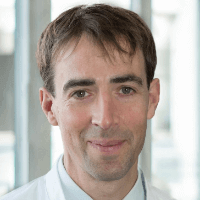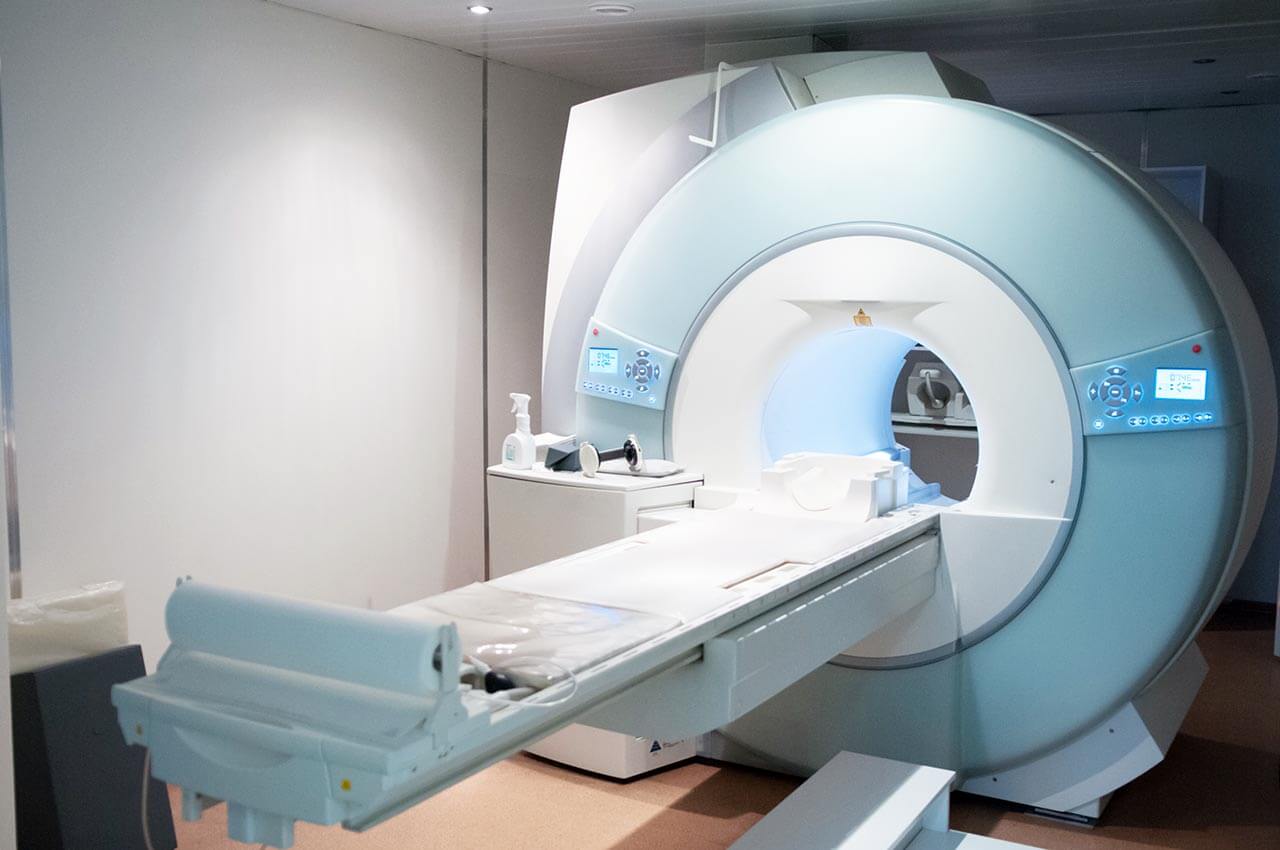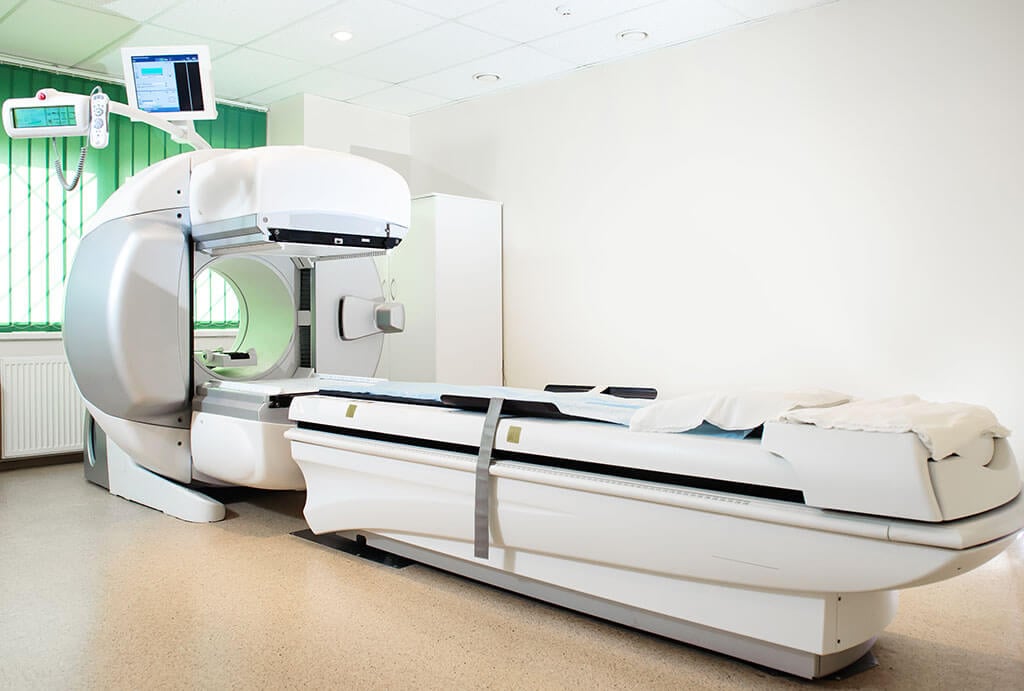
About the Department of Pulmonology at DKD HELIOS Clinic Wiesbaden
The Department of Pulmonology at the DKD HELIOS Clinic Wiesbaden offers the full range of medical services in the areas of its competence. The department's highly qualified doctors carry out a variety of diagnostic tests and therapeutic procedures for the patients with diseases of the lungs, bronchi, pleura and mediastinal organs. One of the key areas of the department's clinical practice is lung cancer treatment. Particular attention is also paid to the medical care for the patients with such chronic respiratory diseases as chronic obstructive pulmonary disease and pulmonary emphysema. The department's pulmonologists cooperate closely with thoracic surgeons, oncologists and other specialists from the related medical fields, thanks to which patients benefit from a comprehensive and interdisciplinary approach to treatment. The department's therapeutic offer includes drug therapy with the latest generation medicines and endoscopic interventional procedures that allow avoiding open surgery. During both diagnostic and therapeutic procedures, the department's specialists observe modern clinical protocols, thanks to which the patient safety is at the highest level. The Chief Physician of the department is Prof. Dr. med. Tim Hirche.
The primary focus of the department's clinical activities is the diagnostics and treatment of lung tumors. The department's doctors have a wide range of diagnostic methods for assessing the condition of the lungs. These are laboratory tests, radiography, computed tomography, bronchoscopy, etc. Small benign tumors are removed endoscopically. Should cancer be confirmed, oncologists, thoracic surgeons, radiologists and other specialists will be necessarily involved in the therapeutic process. They cooperatively study the patient's diagnostic results and develop an optimal treatment regimen for a complete cure or a long-term remission. At the initial stages of lung cancer, the department's specialists most often perform endoscopic removal of the tumor or, in cooperation with thoracic surgeons, perform minimally invasive interventions. The surgery is usually complemented by chemotherapy and radiation therapy. At the advanced stages of lung cancer, surgical treatment is ineffective, and therefore chemotherapy and irradiation become the main therapeutic methods. The department also provides innovative immunotherapy, the essence of which is the targeted effect of drugs on the patient's immune system. The drugs activate the patient's immune system allowing it to detect and destroy cancer cells. The impressive clinical experience of the department's pulmonologists and the availability of state-of-the-art equipment make it possible to successfully treat patients with oncology of varying severity.
The treatment of chronic obstructive pulmonary disease (COPD) is of particular interest to the department's medical team. The pathology is characterized by a chronic limitation of air movement in the respiratory tract. As the disease progresses, symptoms worsen, up to the onset of shortness of breath at rest. To confirm the diagnosis, spirometry is usually used. It allows assessing respiration rate and volume. Chronic obstructive pulmonary disease (COPD) is incurable, but the doctors have excellent options for alleviating symptoms, increasing a patient's physical stamina and improving his quality of life. The initial stages of COPD can be controlled by drug therapy and smoking cessation, if the patient has such a bad habit. Complicated COPD often requires oxygen therapy. The last-line treatment is an endoscopic procedure for lung volume reduction. However, this type of therapy is only used in the most complex clinical cases.
The department's specialists also provide effective treatment for the patients suffering from pulmonary emphysema. The disease develops due to morphological changes in lung tissue and impaired gas exchange in them. The diagnostics involves the use of both laboratory and instrumental methods. If the diagnostic examination confirms the presence of pulmonary emphysema, the next step will be treatment tactics planning. The first step in the therapeutic process is to quit smoking, if the patient has such a bad habit. The basic treatment is drug therapy.
The department specializes in the diagnostics and treatment of the following diseases:
- Chronic cough
- Bronchitis and chronic obstructive pulmonary disease (COPD)
- Bronchial asthma
- Pulmonary emphysema
- Pulmonary fibrosis
- Pulmonary hypertension
- Allergic alveolitis
- Sarcoidosis
- Occupational lung diseases (for example, asbestosis, silicosis)
- Pathological pulmonary lesions caused by systemic diseases (for example, collagenosis, rheumatic diseases)
- Benign and malignant lung tumors
- Infectious lung diseases (such as pneumonia and tuberculosis)
- Rare lung diseases (for example, cystic fibrosis, ciliary dyskinesia, alpha-1 antitrypsin deficiency, histiocytosis X)
- Rejection reactions after transplantation (for example, after bone marrow transplantation)
- Pleurisy of various etiology
- Other lung diseases
The department's diagnostic and therapeutic options include:
- Diagnostics
- Pulmonary function testing
- Assessment of blood oxygen levels
- Measurement of the diffusing capacity of the lungs
- Blood gas test
- Exhaled nitric oxide level test
- Tests with stress and assessment of blood oxygen levels
- Ultrasound scanning of the lungs and other thoracic organs
- Allergic tests (for example, in case of suspected allergic rhinitis, allergic bronchial asthma, etc.)
- Respiratory polygraphy for suspected obstructive sleep apnea
- Diagnostic bronchoscopy
- Resting ECG
- Treatment
- Drug therapy
- Therapeutic bronchoscopy
- Removal of foreign bodies
- Stent implantation in case of airway stenosis
- Pus and mucus removal from the trachea and bronchi
- Removal of small lung tumors
- Argon plasma coagulation
- Weaning from mechanical ventilation
- Other medical services
Curriculum vitae
Higher Education
- 1993 - 1999 Study of Human Medicine, Johann Wolfgang Goethe University of Frankfurt.
- 07.1996 - 07.1997 Study of Human Medicine, Claude Bernard University Lyon 1, France.
- 10.1998 - 02.1999 One-year internship, University of Oxford, England.
- 02.1999 - 06.1999 One-year internship, University of the Free State, South Africa.
Professional Career
- 11.1999 - 06.2008 Physician in the Department of Pulmonology and Allergology, University Hospital Frankfurt am Main.
- 04.2002 - 09.2004 Postdoctoral Fellow, Department of Pulmonology and Intensive Care, University of Washington School of Medicine, St. Louis, USA.
- 06.2008 - 06.2009 Senior Physician in the Department of Pulmonology and Allergology, University Hospital Frankfurt am Main.
- 03.2009 Habilitation and lecturing, Johann Wolfgang Goethe University of Frankfurt.
- Since 07.2009 Chief Physician of the Department of Pulmonology at the DKD HELIOS Clinic Wiesbaden.
Scholarships, Awards and Other Honors
- 07.1996 - 07.1997 Scholarship of the Carl Duisberg Society for Medical Studies at the Claude Bernard University Lyon 1, Lyon, France.
- 10.1998 - 02.1999 Green College Scholarship, Oxford University Medical School for Medical Studies at the University of Oxford, Oxford, England.
- 02.1999 - 06.1999 Scholarship of the German Academic Exchange Service (DAAD) for Medical Studies at the University of the Free State, South Africa.
- 04.2002 - 03.2003 Scholarship of the German Academic Exchange Service (DAAD) for Medical Studies at the Washington University, St. Louis, USA.
- 04.2003 - 09.2004 Research Scholarship of the Christiane Herzog Foundation at the Washington University, St. Louis, USA.
- 06.2005 Encouraging Award of the Johann Wolfgang Goethe University of Frankfurt for Young Investigators.
Photo of the doctor: (c) DKD Helios Klinik Wiesbaden





